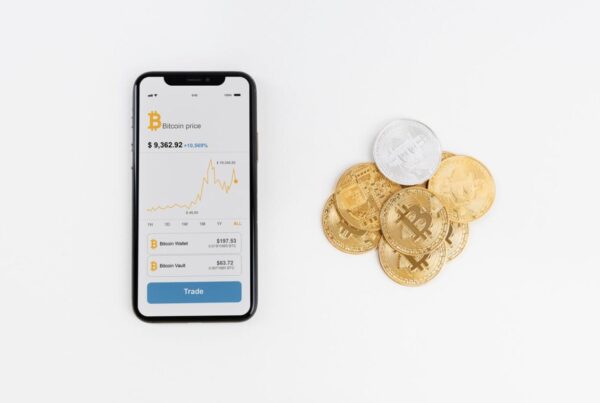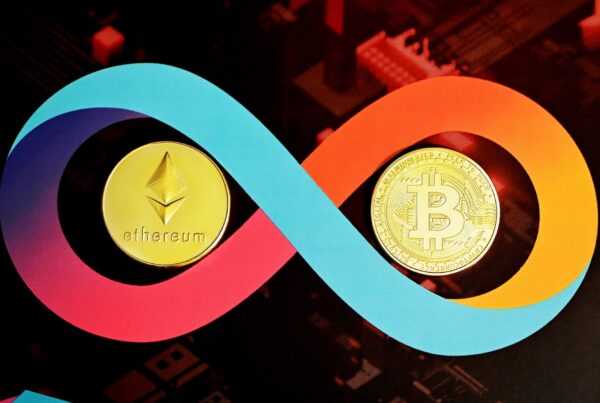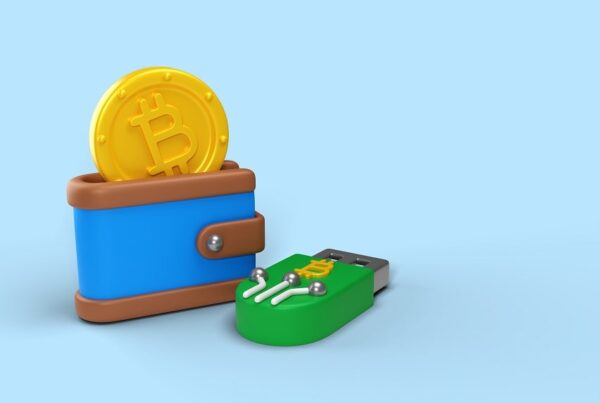How long does bitcoin take to send? Well, one of the biggest concerns for most crypto enthusiasts is that Bitcoin is too slow.
Satoshi Nakamoto, the anonymous person/people behind bitcoin, describes this cryptocurrency as a ‘peer-to-peer version of electronic cash,’ yet BTC is regarded as one of the slowest cryptos to use as an everyday payment mechanism.
So, How Long Does A Bitcoin Transfer Take?
In this article, we are going to look at the bitcoin transaction time, bitcoin transfer time and analyze how long a bitcoin transaction takes.
In addition, we will also look at how you can speed up a bitcoin transaction and ensure it is processed immediately. Read on!

What is a Bitcoin Transaction?
A bitcoin transaction is the transfer of BTC from one party to another. Bitcoin transactions are generated in digital wallets and are transmitted to the Bitcoin network, where they are verified in a Bitcoin “node.” They are then added to the blockchain by a miner.
What Happens When You Send Bitcoin?
Before we look at BTC transaction time, you need to know what happens when you send bitcoin. Bitcoin is a digital currency, which means it doesn’t exist in physical form. There is no paper that denotes the value of Bitcoin, and you cannot hold this currency in your hands.
How Does Cryptocurrency Gain Value? Read more here.
Being a virtual currency, Bitcoin has to be verified on a public ledger known as the blockchain, which contains the history of every transaction and signatures.
Every bitcoin you own contains a pair of keys – the private and public keys. The private key is known to you and helps you transact your bitcoins, while the public key is shared with others.
Simply put, the private key helps you authorize transactions while the public key gives information about the transactions.
Note: DO NOT share your private key with anyone you don’t trust. Also, remember to backup this key because if it is stolen or you lose it for some reason, you might end up losing your assets.
A bitcoin transaction message contains three critical elements:
Input
This is the code that shows the source of the coins. It displays the history of the bitcoin in your public key.
Amount
This is basically the number of bitcoins in a transaction.
Output
This is the address of the transaction, popularly known as the public key.
As soon as the blockchain network receives a transaction message containing these elements, miners work to verify or validate the transaction. This is a complicated process that requires one to solve complex mathematical problems and come up with new signatures.
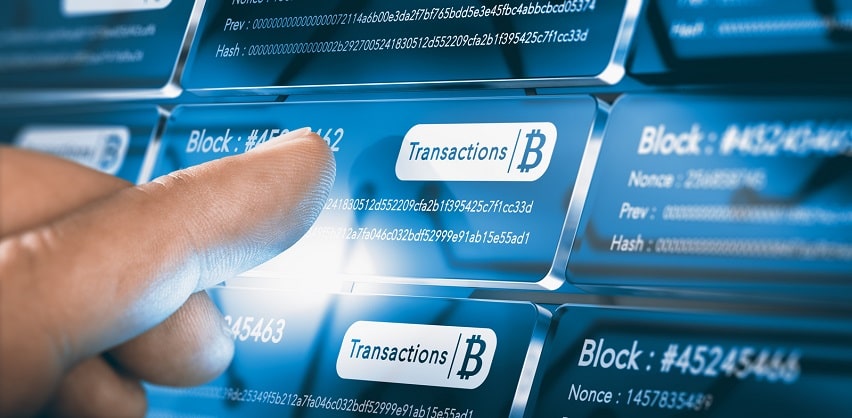
Understanding UXTOs and Inputs
Considering that someone’s bitcoins can span various blocks in the blockchain, the bitcoin wallet involved in a transaction scans the blockchain, searching for unspent transaction output (UXTO). UXTO is what contributes to a bitcoin user’s balance.
A UXTO database is maintained by the wallet or third-party service on behalf of the bitcoin holder. Every UXTO is indivisible.
For this reason, if the amount you want to pay is larger than the amount to be paid, change is made in the form of a new UXTO. It works the same as buying an item worth $45 using a $100 dollar bill and receiving $65 in change.
To make a payment using BTC, your wallet creates a transaction input that points to a UXTO and unlocks it using a digital signature (private key) that proves ownership. When this happens, the transaction is broadcasted to the BTC network.
For further info about wallets read this article: What is a cryptocurrency wallet?
What Determines the Transfer Time of Bitcoin?
If someone asks you, “how long does bitcoin take to send?” You cannot exclude bitcoin transfer time in your conversation. Look, Bitcoin transfer time can take as little as 10 minutes, or as much as several hours, days, or even a week!
This is mainly because miners have to verify and validate transactions, and the network can be slow at times.
Bitcoin transactions are added to blocks that must be verified and added to the blockchain network. The standard mining time for a single block is 10 minutes.
You can read more about that in this article: How Many Bitcoins Are There Right Now?
However, there are a few factors that determine the transfer time of Bitcoin. They include:
Amount of Network Activity
The BTC network activity depends on the number of transactions it processes in a single day. If the number of transactions is high, then the network activity will be high. If the number of transactions is low, then network activity will be minimal.
Thanks to the increasing popularity of bitcoin, the network can, at times, experience a backlog of transactions waiting to be verified.
The block sizes are limited (1MB) and are often combined in a large queue Known as the Bitcoin mempool. The size of the mempool size reduces with increasing transaction priority, wait times, and fees.
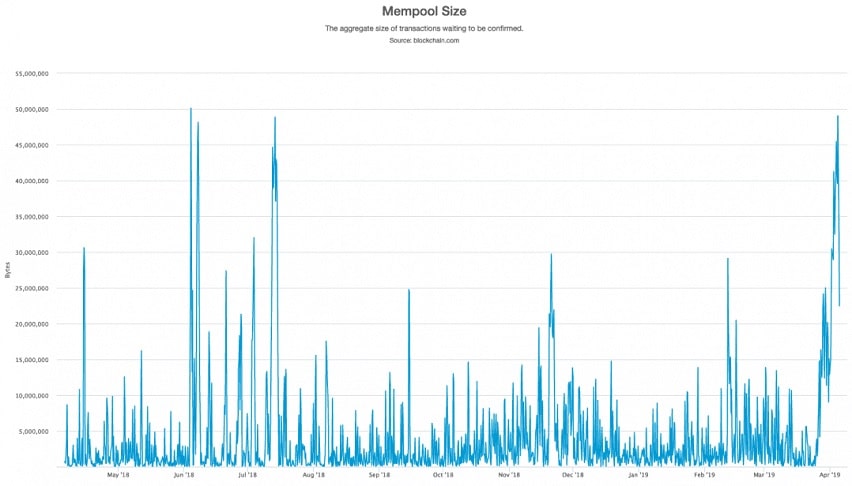
To understand how network activity affects the transfer time of Bitcoin, look at this scenario.
Assuming that your transaction is the block and mine, the first bitcoin confirmation time will be 10 minutes, and you will receive the other five confirmations in 50 minutes. This means that it could take up to 60 minutes to transfer BTC into your wallet.
Transaction Fees
Another factor that determines the transfer time of bitcoin is transaction fees. Mining is a complex task that demands the use of power, advanced technology, and effort. This is why you are required to pay transaction fees in every bitcoin transaction. These fees help in prioritizing your transaction.
This simply means that the more transaction fees you pay, the faster your transaction will be processed. A delay mostly occurs when your transaction fees are very low and miners opt to work on your block last.
Transaction fees in the BTC network are expressed in Satoshis per byte. This is one-hundredth millionth of a BTC per byte size of every transaction. The transaction fees are not necessary, but they prioritize transaction verification.
Being a decentralized digital currency, bitcoin is highly volatile. The transaction fees may increase or decrease, and it is essential for wait time to stabilize.
BTC developers understand that the 30-60 minutes could prompt crypto investors to opt for coins with faster transaction times, and this is why they are constantly working on solutions that will make BTC transactions instantaneous.
These solutions include the Lightning Network, which, once enabled, will ensure wallets shorten transaction confirmation time and reduce transaction fees.
Bitcoin Transaction Fee
All bitcoin transactions must be added to the blockchain, which is the official public ledger of all bitcoin transactions, for them to be considered valid and successfully completed.
The job of validating transactions and adding them to the blockchain is done by miners who use powerful computers and vast amounts of energy.
They, however, do this for a financial reward. For every block added to the blockchain, there is a bounty known as the block reward (which currently stands at 12.5 BTC) and transaction fees sent with all transactions included in the block.
Even though some quotas may argue that bitcoin transaction fees are not important, miners have a financial incentive to prioritize the validation of transactions that have higher fees.
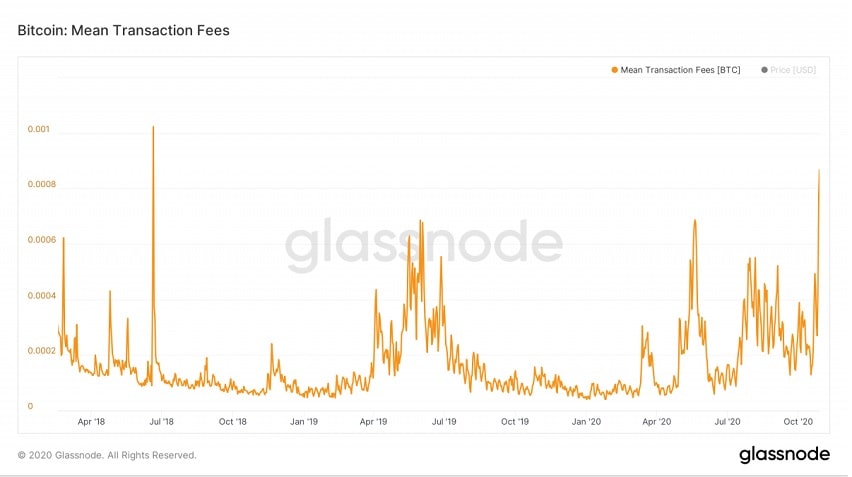
If you are looking to send funds and enjoy quick confirmation time, the appropriate fee will vary greatly depending on the following factors:
Network conditions
Since a block in the blockchain network can only contain up to 1MB of data, there is a limited number of transactions that can exist in one block. When there is congestion, there are huge numbers of transactions awaiting confirmation, then there is space in a given block.
When you send some funds, and the transaction is broadcasted, it goes to what is known as a memory pool (mempool, as mentioned earlier). It is in the mempool where miners prioritize transactions with a higher transaction fee.
When the mempool is full, the fee market may turn competitive. Users will try to get their transactions validated and verified faster by including higher fees.
When the market reaches the maximum equilibrium fee that all users are willing to pay, miners will work through the mempool in order.
The moment the traffic in the mempool decreases, the transaction fees will decrease.
Transaction size
Transaction size is one of the factors that affect transaction fees. Large transactions take up more space in a block, while smaller ones are easier to validate. Miners, therefore, prefer smaller transactions.
A large transaction will need a larger transaction fee to be included in the next block
How Long Does a Transaction Confirmation Take?
Asking how long does a bitcoin confirmation take is like asking how big a house is. There are varied answers. Generally, bitcoin transactions take anywhere from 10 minutes to one hour. The main reason behind the different speeds is that different situations need different amounts of confirmations.
Bitcoin transaction confirmation can be divided into three categories, as outlined below:
Fast
One of the questions that most people ask is – are bitcoin transactions instant? The answer is yes. There are instances where the merchant accepts payments as soon as a transaction is broadcast to the network. This can take place in as little as 5-10 seconds.
This scenario is known as zero-confirmation. The only problem with zero confirmation is that it is insecure and could increase merchants’ vulnerability to double spend. Therefore, many people don’t accept zero-confirmation even though it is fast.
Medium
How long does it take to transfer bitcoins between wallets? Well, in this category, merchants require at least two confirmations.
Each confirmation is equal to the bitcoin transaction being included in a single block, and every block takes 10 minutes. Since there are two blocks, it means that transactions take approximately 20 minutes to be confirmed.
Slow
Most bitcoin exchanges that allow users to trade in BTC typically require more confirmations. For instance, Coinbase and Kraken require six confirmations each.
Therefore, if you are selling BTC in these exchanges, it could take 60 minutes for a transaction to be confirmed.
It is worth noting that six confirmations are a requirement for a majority of high-value transactions, such as buying electronics or gold with BTC. When a transaction has six confirmations, it has guaranteed safety and is not prone to double spend.
Tip: If you are a merchant or you are aspiring to be one, avoid zero-confirmation even if it clears in seconds. It is better to wait for an hour for funds to clear and be spendable than lose your valuable assets to cybercriminals.
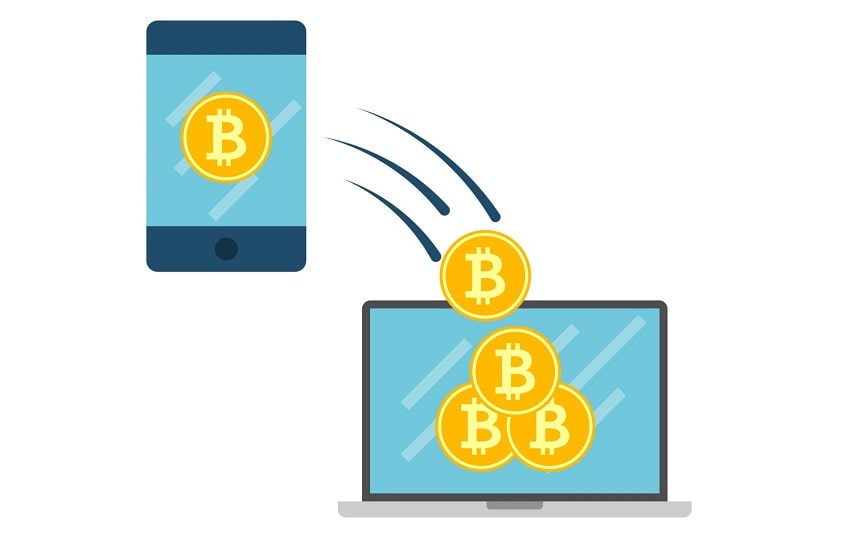
How Long Can a Bitcoin Transaction Stay Unconfirmed?
A bitcoin transaction can stay unconfirmed for about 48 hours. However, this is nothing to worry about. Unconfirmed transactions often get dropped from all mempools after 48 hours, and your coin balance is updated in your wallet.
In case you want to ensure that your transaction gets processed as fast as possible, you need to set an appropriate transaction fee.
How to Send Bitcoin Faster? Tezro app!
There are a number of ways that you can speed up the current bitcoin transaction time. One of the ways is to pay a higher transaction fee so that miners can prioritize your transaction.
To ensure you set a fee that will guarantee fast transactions, it would be helpful to choose the most reliable and effective bitcoin wallet.
Tezro is, without a doubt, the most revolutionary application that eliminates the need for multiple wallets and makes it easy for you to pay a higher transaction fee so that your transactions can be confirmed faster.
You can also trade your Bitcoin and other cryptocurrencies in the Tezro app and liquefy your assets in no time!
Read more here about Tezro app features.
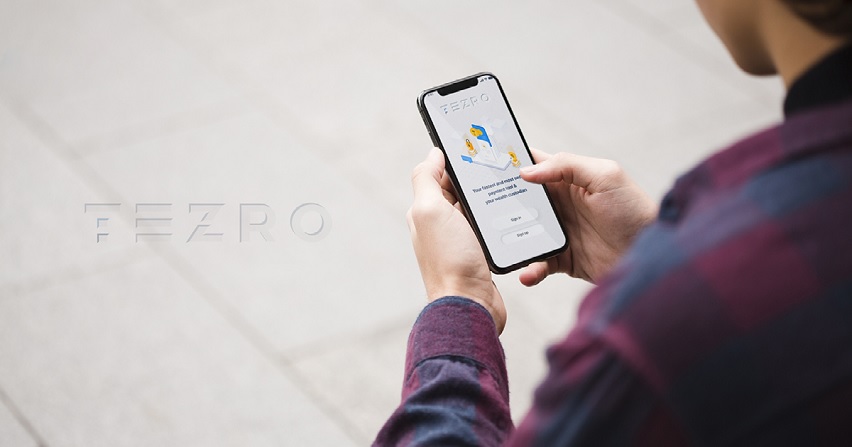
Key Takeaways
- The amount of network activity and transaction fees are the main factors that determine the transfer time of BTC.
- You can reduce bitcoin transfer time by paying a higher transaction fee and using a wallet that allows you to do so like Tezro.
- Never use zero-confirmation since it could make your transactions vulnerable to security threats.
Conclusion
How long does bitcoin take to send? Well, now that you have read this article to the end, you certainly have the most appropriate answer to this question. However, before we wrap it up, you are probably wondering when a transaction is confirmed.
A BTC transaction is confirmed once a miner processes the block that contains a transaction.
If you have used the Tezro app and set a high transaction fee, a miner is likely to process your transaction quickly. Tezro provides a nominal fee that ensures your transaction is processed with a particular time limit.
It is worth noting that one confirmation is enough for transactions under $1,000, and you can expect funds in around 10 minutes.
Six confirmations are recommended for transactions between $10,000 and $1,000,000 while sixty confirmations are required for transactions over $1,000,000 for enhanced security.
Get in touch with Tezro app and make your transactions faster and safer.









